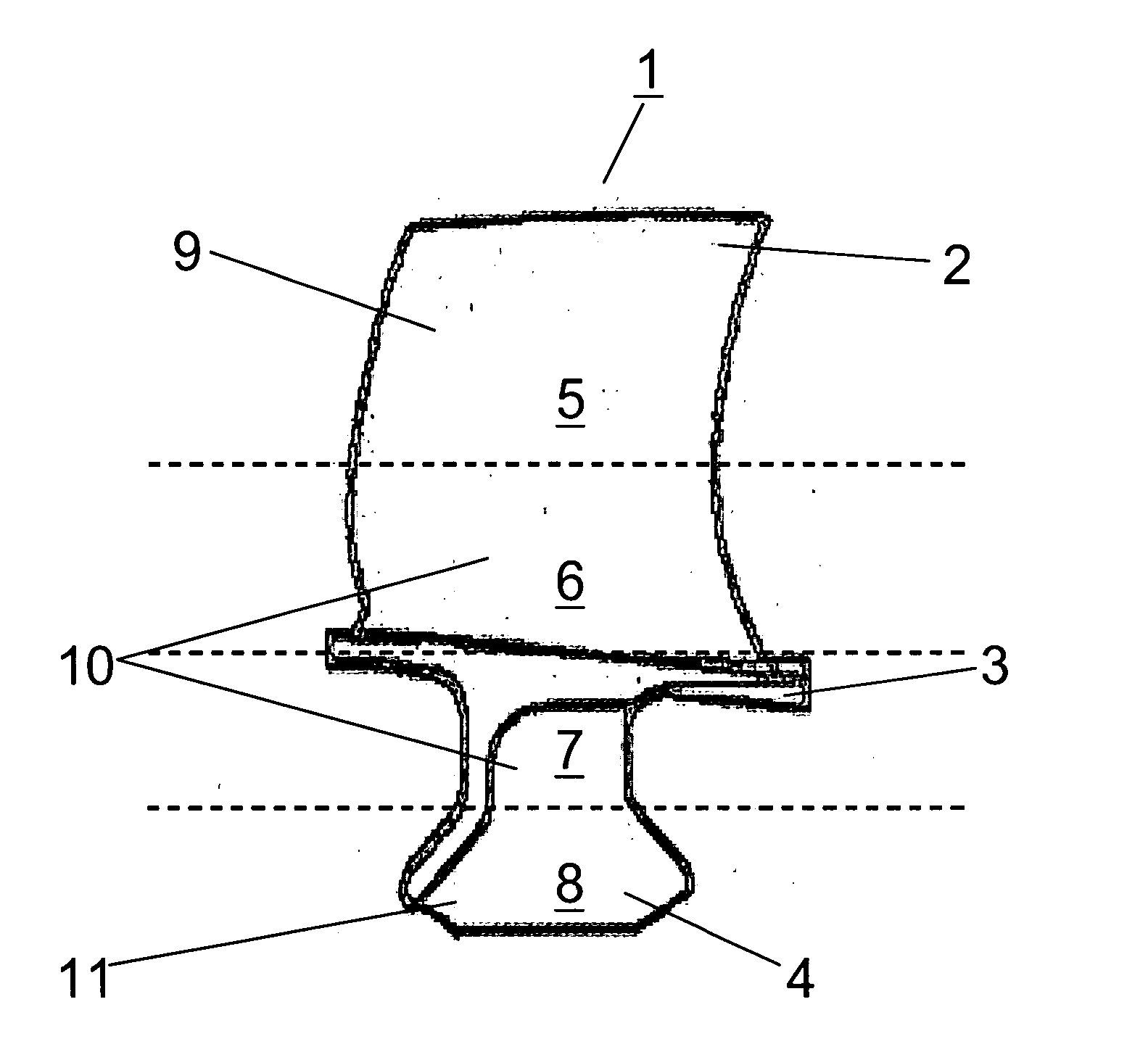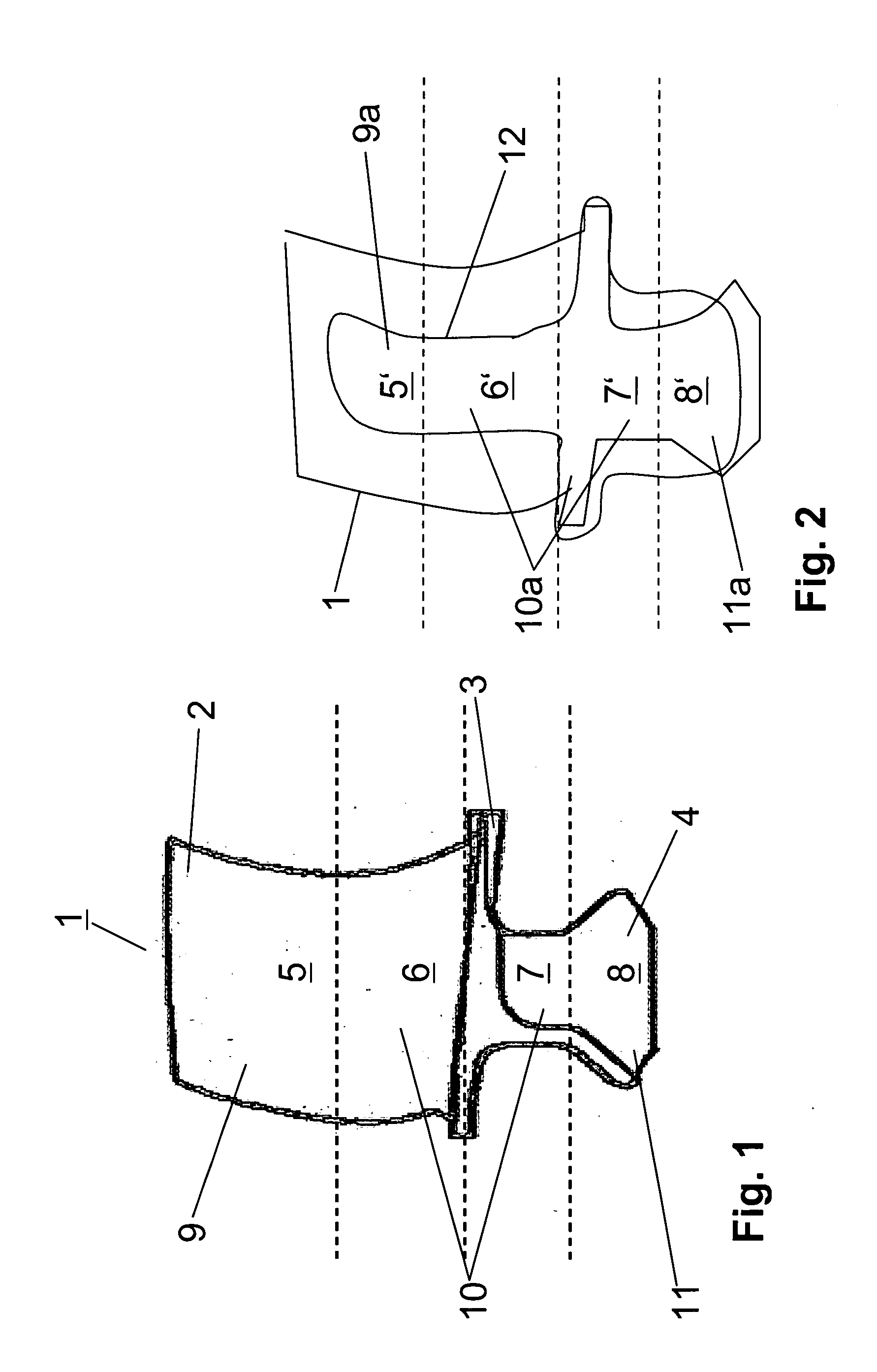Method for the manufacture of highly loadable components by precision forging
- Summary
- Abstract
- Description
- Claims
- Application Information
AI Technical Summary
Benefits of technology
Problems solved by technology
Method used
Image
Examples
Embodiment Construction
[0015] The finished compressor blade 1 shown in FIG. 1 comprises an airfoil 2, a platform 3 and a root 4. In operation, the compressor blade 1 is partially, i.e., in the various blade zones, subject to different loads. A first stress zone 5 with small volume, which covers approximately the upper airfoil half extending from the blade tip, is subject to a dynamic high-frequency load and a low static load. A second stress zone 6, which covers approximately the bottom airfoil half, has a large volume and is subject to a medium static load and a low-frequency dynamic load. A third stress zone 7, which covers the platform 3 and the adjacent upper part of the root 4, again has a large volume and is subject to a high static and a low dynamic load. A fourth stress zone 8, which covers the bottom part of the root 4, has a medium volume and is subject to low load. The compressor blade 1 accordingly comprises three volume zones 9 to 11 of which each has a different volume, namely a first volume...
PUM
| Property | Measurement | Unit |
|---|---|---|
| Structure | aaaaa | aaaaa |
| Deformation enthalpy | aaaaa | aaaaa |
Abstract
Description
Claims
Application Information
 Login to View More
Login to View More - R&D
- Intellectual Property
- Life Sciences
- Materials
- Tech Scout
- Unparalleled Data Quality
- Higher Quality Content
- 60% Fewer Hallucinations
Browse by: Latest US Patents, China's latest patents, Technical Efficacy Thesaurus, Application Domain, Technology Topic, Popular Technical Reports.
© 2025 PatSnap. All rights reserved.Legal|Privacy policy|Modern Slavery Act Transparency Statement|Sitemap|About US| Contact US: help@patsnap.com


